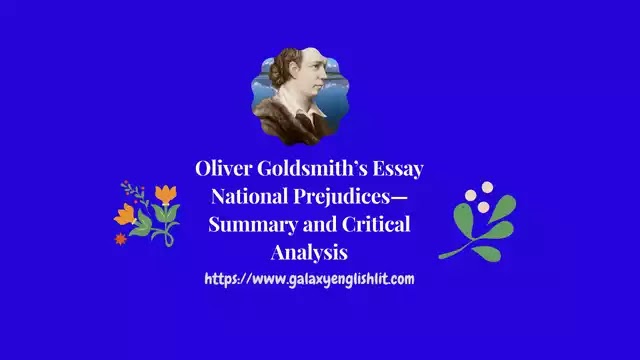Introduction:
The play Macbeth has been described as the darkest and the blackest of all Shakespeare's tragedies. The darkness and gloom is visible on both the planes - physical and spiritual. The spiritual darkness is more intensely felt than the physical. The souls of both the hero and the heroine are replete with the darkness of sin, crime and guilty thoughts. The wickedness or blackness in Macbeth and Lady Macbeth is in close harmony with the all - enveloping blackness of the atmosphere. Macbeth's bloody career has been set in an appropriate atmosphere of blackness. There is close integration of atmosphere.

Darkness in Physical Form:
Throughout the play, Macbeth darkness is visible in its grim physical form. All the important incidents take place either in the gloomy dusk of evening or the black cover of night. The play is, in fact, set in a dark or black atmosphere from the beginning to the end. The spirit of the night and gloom broods over the whole play. The meeting with the Witches, the hatching and execution of the conspiracy against Duncans, the murder of Banquo, the sleepwalking scene of Lady Macbeth, the Porter scene and finally the death of Macbeth— all these take place in the cover of darkness. Both Macbeth and Lady Macbeth invoke the spirit of the night and darkness to execute their plans. Even the dim light of stars is appalling to Macbeth.
Stars, hide your fires;
Let not light see my black and deep desires;
The eye wink at the hand; yet let that be
Which the eye fears, when it is done, to see.
Macbeth Likewise, Lady Macbeth invokes the spirit of black night:
Come, thick night,
And pall thee in the dunnest smoke of hell.
That my keen knife see not the wound it makes,
Nor heaven peep through the blanket of the dark,
To cry, ‘Hold, hold!’
Pervasion of Spiritual Darkness:
Besides physical darkness, spiritual darkness no less pervades the play. The play is replete with the darkness of sin and crime that lurks into the souls of Macbeth and Lady Macbeth. Both of them harbour dark thoughts of murder, sin and ingratitude in their hearts. It is these sinful thoughts already existing in his heart, that lure Macbeth to fall into the trap of black hags’, who deprive him of the light of virtue and set him on the road to sin and crime. He is totally blinded by his vaulting sinister ambition to become the king of Scotland. It is this spiritual darkness it Macbeth that becomes the cause of crime after crime at his hands. The same darkness of sin pervades in the heart of Lady Macbeth. So far her dark and sinful thoughts are concerned, Lady Macbeth is no less than the fourth Witch But when retribution works, the very thought of darkness makes her shudder with fear. She is so haunted by the spirit of night that she constantly keeps a candle in her hand as if it were always night.
Other Agents of Blackness:
Then, there are ministers of darkness an night working actively in the play. They are the three Witches, the two ghosts and apparitions. In fact they are the symbols of spirits of hell treading the earth to entrap and ensnare men in their dark designs. The three Witches accelerate the sinful thoughts of Macbeth. They act as boosters. Whenever his courage seems to fail him, they visit him and strengthen his faith in the powers of evil. The ghosts rise and appear before him to torment his soul. Macbeth is thus caught and tormented by these dark powers of the dark hell. Bradley rightly says, “These agencies of darkness, the light and colours that illuminate it, the storm that rushes through it, the violent and gigantic images conspire with the appearance of the Witches and ghosts to awaken horror, and in some degree also a supernatural dread.”
Thus, on all levels, Macbeth is replete with the atmosphere of darkness and night. The external dark atmosphere suits well with the internal gloom and dark intents of the chief characters.





